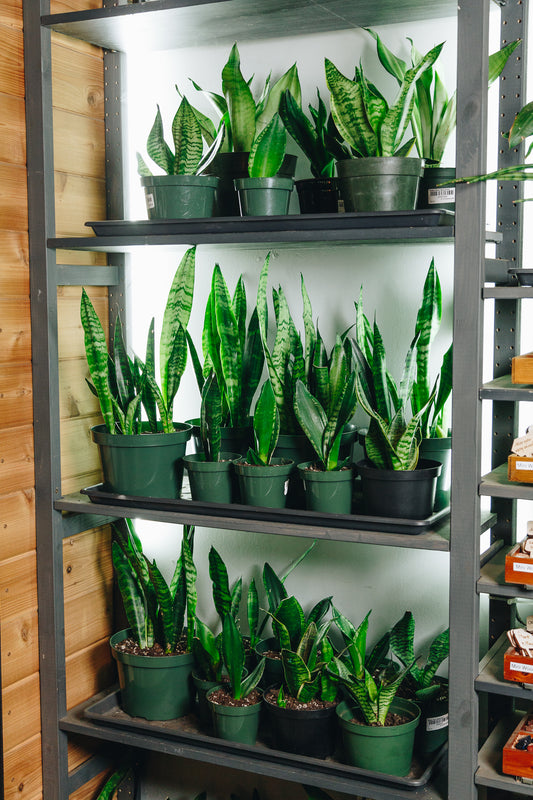
Palaecea Minor is one of the more hands off air plants. It’s extremely drought tolerant, and in a more humid home you may find you hardly need to water it at all. Thanks to those fuzzy white scales (called trichomes) it’s does need extended light through the day so keep that in mind when you are picking out a place for it to live. Like all air plants, palaecea minor get most of their nutrients through their leaves, with roots that are for gripping to trees or rocks rather than gathering nutrients.
Palaecea prefer warm environments. They can survive outside during the warmer months, but will likely be happiest in your home.
Light
As we mentioned a bit earlier, paleacea minor needs more bright continuous light than other varieties of air plants. They can be placed near most windows, but be aware North facing windows might not get enough light. You can also use a grow light to supplement, but be conscious of light placement and keep light indirect. We recommend these if you need a grow light bulb.
Water
Paleacea Minor requires very little watering in a humid environment. If your home is on the drier side be sure to mist occasionally to supplement. They can be placed on sand, moss, or other materials that don’t absorb a lot of water. To water your palaecea minor plant mist until it’s evenly coated once a week, making sure to allow your plant to drain upside down to ensure that all of the moisture drains from the crevasses. Paleacea minor can rot if there is not enough air circulation for it to dry out quickly enough.
Fertilizing
Your air plant can be fertilized weekly in the spring and summer to encourage blossoms using a spray on fertilizer like this one (link to fertilizer used in store)
Long Term Care
With correct care and regular fertilizing your Paleacea Minor can last for years to come.
Pet info
Palaecea Minor are not toxic to animals.



